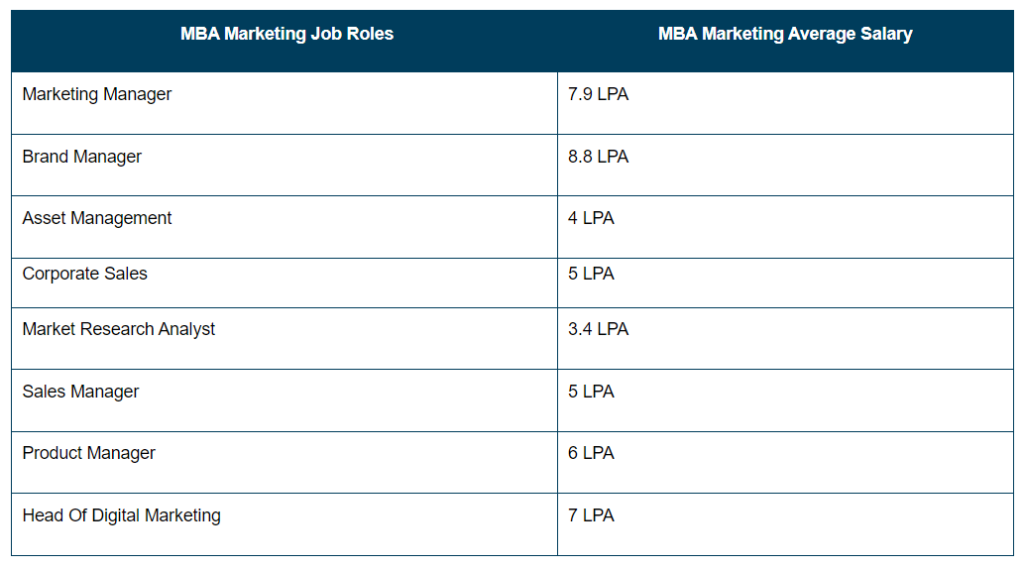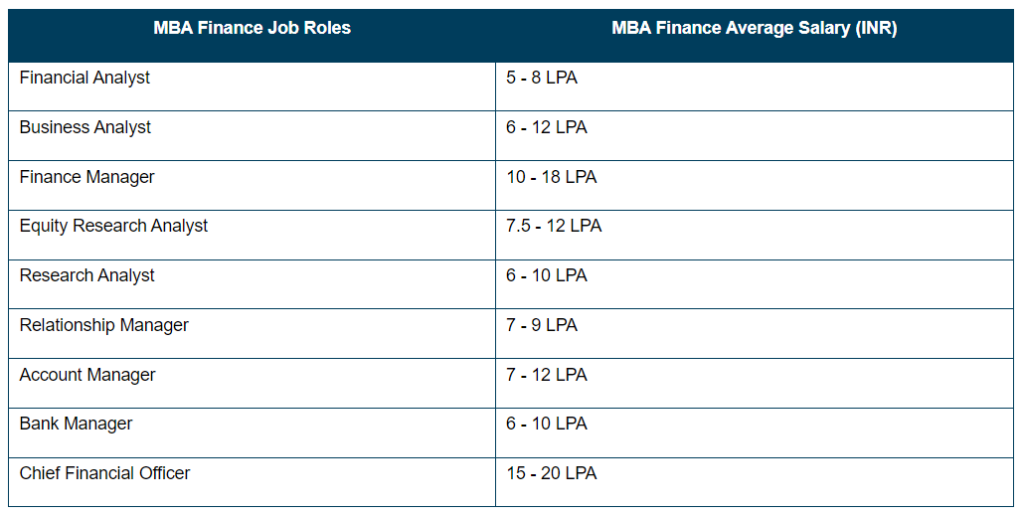Choosing appropriate MBA specializations is essential in your career path. With so many options available, aligning your choice with your financial status, interests, career goals, and market demand is necessary. Specializing in a specific area enriches your expertise and opens doors to targeted career opportunities.
This blog post delves into India’s five most popular MBA specializations, guiding you in making an informed decision. Before diving deep into each specialization, let’s first understand what an MBA specialization is?
“Tarkashastra made my MBA CET registration seamless with their guidance and resources at every step.”
Join our classes today.
Add Your Heading Text Here
What Is An MBA Specialization?
MBA specialization involves focusing on a specific business area, such as Finance, Marketing, Human Resources, Operations Management, Information Technology, Business Analytics, Data Science, International Business, Healthcare Management, Project Management, Supply Chain Management, and Digital Marketing. These specializations allow students to focus their studies on a particular interest, equipping them with the skills and knowledge necessary to pursue a career in that field.
The curriculum for each specialization varies, and students should research it thoroughly before choosing an MBA specialization. Pursuing the right MBA specialization is an excellent path for students to advance their careers and achieve their professional goals.
Upon completing elective courses dedicated to a particular area, students are awarded an MBA degree specializing in their chosen field.
What Is The Importance Of MBA Specializations?
MBA specializations enable students to gain in-depth knowledge and skills customized to specific industries. This focused education prepares them to handle their chosen specialization’s unique challenges and demands.
Here are the top reasons why pursuing an MBA specialization is beneficial:
- Career Advancement: Specializing in a particular domain can lead to faster promotions and more significant responsibilities.
- Higher Salary: Specialized skills often command higher salaries than general MBA graduates.
- Industry-Relevant Skills: Specializations ensure that students acquire the latest knowledge and skills relevant to their industry.
- Networking Opportunities: Specialized MBA programs often provide access to industry-specific networks and alumni.
- Better Job Prospects: Employers prefer candidates with specialized skills that align with their organizational needs.
Now, let’s explore India’s five most popular MBA specializations, their importance, principles, MBA specialization subjects, and relevance to the Indian job market. We will also discuss future prospects, top colleges, average salary ranges, and the industries most applicable to each specialization.
List Of The 5 Best MBA Specializations In India
1. MBA In Marketing
Importance And Principles
Marketing is the most in demand specialization among MBA graduates in India. It is a demanding front-end role especially for leaders. An MBA in Marketing is a dynamic and highly competitive program. To excel and reach top-level positions in marketing, one must carry excellent communication skills, resource mobilization abilities, and a firm drive to succeed.
An MBA in Marketing focuses on understanding consumer behavior, developing marketing strategies, and managing brand equity & prepares you for essential business activities.
Future Prospects
An MBA in Marketing provides a dynamic career filled with responsibilities, challenges, and growth opportunities across sectors such as Fast-Moving Consumer Goods (FMCG), Consumer Durables, Non-Durables, Advertising, Market Research, Media, Sales and distribution, Services Marketing, and Digital Marketing.
Relevance To The Indian Job Market
India’s diverse market requires innovative marketing strategies, making marketing professionals highly desired.
Subjects
- Accounting And Managerial Decisions
- Management Information Systems
- Human Resource Management
- Marketing Management
- Management Concepts
Top Colleges
- IIM, Ahmedabad
- IIM, Calcutta
- IIM Indore
- IIM Udaipur
- NIT Trichy
- IIT Madras
- IIT Roorkee
- NMIMS
- Lovely Professional University
- Amity University
Applicable Industries
- FMCG
- Retail
- Advertising
- Digital Marketing
- Technology
- Healthcare and Pharmaceuticals
- Consumer Goods
- Automotive
- Entertainment and Media
- Real Estate
Average Salary Range For Different Roles
Key Points
- Marketing management might be your calling if you have an outgoing, spontaneous personality, can influence people, and live in the moment.
- An MBA in Marketing promises high pay packages as a Brand Manager, Project Manager, Sales Manager, Marketing Manager, Market Research Analyst, Area/Regional Manager, or Chief Marketing Officer (CMO).
- Many CEO positions in top multinational companies are held by people with a marketing background.

2. MBA In Finance
Importance And Principles
MBA in Finance is an evergreen and globally recognized specialization irrespective of the company’s size or industry. It is one of the most picked specializations by students due to its vast scope and diverse career opportunities.
At its core, the MBA in Finance arms students with the skills required for financial management, risk analysis and control, investments, taxation, corporate valuation, mergers and acquisitions (M&A), portfolio management and research, hedge funds, and accounting principles.
Future Prospects
Employment opportunities for finance professionals are available across all industries. Some famous roles include Financial Analyst/Accountant, Investment Banker/Portfolio Manager, Financial Advisor/Consultant, Risk Manager/Treasury Officer, etc. MBA Finance coursework offers a robust foundation for pursuing the esteemed CPA (Certified Public Accountant) exam or the highly regarded CFA (Chartered Financial Analyst) exam.
Relevance To The Indian Job Market
Financial institutions, banks, consulting firms, and insurance companies that are up-to-date with the evolving market require professionals with exceptional financial skills. This relevance is reflected in India’s top B schools offering this specialization.
Subjects
- Financial Accounting Accountancy
- Treasury and Risk Management
- Financial Analysis and Reporting
- Financial Risk Management
- Financial Markets
Top Colleges
- IIM Ahmedabad
- KIIT Bhubaneswar
- IIT Madras
- Christ University
- UPES Dehradun
- IIM Kozhikode
- FMS Delhi
- IIM Lucknow
- NMIMS Mumbai
- Narsee Monjee Institute of Management Studies
- Xavier School of Management (XLRI), Jamshedpur
- Xavier Institute of Social Service XISS
Applicable Industries
- Consulting
- Insurance
- Investment Banking
- Corporate Finance
- Asset Management
- Commercial Banking
- Financial Consulting
- Real Estate Finance
- Fintech
- Public Accounting and Auditing
Average Salary Range

Key Points:
- Finance professionals can become CEOs or CFOs (Chief Financial Officers supervise all financial and accounting operations, strategies, and policies of the company) of top companies.
- Finance Management is suited for individuals passionate about numbers and balance sheets, possess advanced analytical skills, and prefer working in the company’s back office.
- An MBA in Finance requires discipline, strong analytical skills, and an affinity for numbers.
3. MBA In Human Resources (HR)
Importance And Principles
A specialization in Human Resource Management (HRM) allows students to learn how to manage a company’s most valuable asset – its people. Human Resources, commonly known as HR, is one of the most complex roles in the corporate world. An MBA in HR is responsible for employee relations, talent acquisition, training and development, performance management, compensation and benefits, industrial relations, and diversity and inclusion policies.
In addition to technical skills like recruitment and payroll management, an MBA in HR provides opportunities for personal growth by developing leadership qualities through communication skills and principles of ethics.
Future Prospects
The work profile of HR managers includes a wide range of responsibilities, from recruiting new employees to their exit. This dynamic role paves the way for various job profiles, such as Training & Development Manager/Officer or Compensation & Benefits Manager. An MBA in HR can also open doors to higher management roles, such as Human Resource Director or Chief Human Resource Officer (CHRO).
Relevance To The Indian Job Market
The dynamic nature of the Indian job market requires companies to have a solid and efficient human resources team. Top B-schools in India offer an MBA in HR, recognizing its relevance and demand.
Subjects
- Labor Laws
- Organizational Behavior
- Human Resource Management
- Compensation Management
- Strategic Management
Top Colleges
- IMI New Delhi
- TISS, Mumbai
- NMIMS Mumbai
- IIM Indore
- IIM Tiruchirappalli
- KJ Somaiya School of Management
- IIM Ranchi
- Loyola Institute of Business Administration
- Christ University
- University of Delhi
Applicable Industries
- Manufacturing
- IT and ITES
- Consulting
- Non-Profit Organizations
- Consulting
- Education
- Government and Public Sector
- Hospitality and Tourism
- E-commerce
- Healthcare
Average Salary Range

Key Points:
- An MBA in HR requires exceptional communication skills and an understanding of human behavior.
- A career in HR management is ideal for people who enjoy working with others and are passionate about building relationships.
- This specialization offers excellent opportunities for networking through various platforms like alumni associations, professional forums, etc.
4. MBA In Information Technology (IT)
Importance And Principles
Information Technology (IT) or Management Information Systems (MIS) has recently emerged as one of the most critical MBA specializations. An MBA in Information Technology (IT) sharply focuses on technology management and offers a mix of business and IT classes. These courses prepare students to manage projects, develop new products, design information systems, and ensure cybersecurity.
The principles taught under this specialization include managing virtual teams, software development processes, data analysis techniques, strategic planning for IT solutions, and e-business strategies.
Future Prospects
Given that every organization today relies on technology for its operations and growth, an MBA in IT is highly sought after. Some significant opportunities lie in IT consulting and project management roles like Business Analyst/IT Project Manager or Product Manager/Technology Specialist, which require knowledge of both business skills and technical expertise. An MBA in IT unlocks opportunities with Fortune 500 companies in India and internationally.
Relevance To The Indian Job Market
India is a global hub for IT services and has been witnessing significant growth. An MBA in IT is highly relevant to the IT sector. in the Indian job market, with companies looking for professionals who can bridge the gap between business goals and technology solutions.
Subjects
- Database Management
- Enterprise Resource Planning (ERP)
- Software Design & Development
- Information Security & Risk Management
- Business Intelligence & Analytics
Top Colleges
- Indian Institute of Technology (IIT) Delhi
- IIM Ahmedabad
- IIM Bangalore
- IIM Lucknow
- IIM Calcutta
- NMIMS, Bangalore
- Indian Institute of Foreign Trade
- Symbiosis Centre for Information Technology
- Institute of Management Technology, Ghaziabad
- Amity University
Applicable Industries
- IT Services
- E-commerce
- Healthcare
- Telecommunications
- Education & E-Learning
- Retail
- Media & Entertainment
- Real Estate
- Automotive
- Finance & Banking
Average Salary Range

Key Points:
- An MBA in IT requires strong analytical and problem-solving skills and an understanding of the latest technology trends.
- This specialization combines business and technical knowledge, making it suitable for individuals interested in both fields.
- With businesses increasingly digitizing, there is a high demand for professionals who can manage technology solutions effectively. Pursuing an MBA in IT can lead to promising career opportunities.
5. MBA In Operations
Importance And Principles
Operations management involves overseeing the production and delivery of goods and services as efficiently and effectively as possible. An MBA in Operations provides you with the skills and training necessary to excel in Production Management or Shop Floor Management. This specialization focuses on supply chain management, logistics, quality control, process optimization, and inventory management.
The principles taught include project management methodologies, lean methods for process improvement, Six Sigma techniques for quality control, and strategies for managing global operations.
Future Prospects
With the increasing competition in today’s market, companies want to streamline their operations to reduce costs and improve efficiency. This creates a high demand for professionals with expertise in operations management roles such as supply chain manager, logistics manager, or operations manager. An MBA in Operations Management also provides opportunities to work in various industries like manufacturing, healthcare, retail, etc.
Relevance To The Indian Job Market
India is a growing market with a large manufacturing sector, which requires efficient operations management to stay competitive. An MBA in Operations Management is highly relevant and in-demand in the Indian job market.
Subjects
- Production Management
- Supply Chain Management
- Quality Control & Six Sigma
- Logistics & Distribution
- Inventory Management
Top Colleges
- BITS School of Management
- Indian School of Business (ISB) Hyderabad
- IIM Bangalore
- NMIMS Mumbai
- Indian Institute of Foreign Trade, New Delhi
- IIT Delhi
- University of Delhi
- Christ University
- Presidency University
- IIM Tiruchirappalli
Applicable Industries
- Manufacturing
- Retail & Ecommerce
- Healthcare
- Consulting & Services
- Logistics & Transportation
- Construction
- Energy & Utilities
- Aerospace & Defense
- Pharmaceuticals
- Hospitality
Average Salary Range

Key Points:
- Operations Management requires attention to detail, strong negotiation skills, the ability to navigate challenges calmly, technical knowledge of processes, and a general understanding of manufacturing, sales, and distribution channels.
- With the increasing demand for efficient operations management, this specialization provides various opportunities for growth and advancement.
- This specialization offers a good balance of theoretical knowledge and practical application through case studies and projects.
How To Choose The Best MBA Specialization?
The decision depends on several key factors, primarily your interest in management. Here are some essential points to consider when choosing the MBA specialization that best fits your academic and career goals.

1. Area Of Interest
When choosing an MBA specialization, your primary guiding factor should be your area of interest in management. This interest, which may also be influenced by your educational background, is crucial in determining your specialization.
2. Aptitude And Strength Area
More than ingesting in a management subject is not enough required, and I also have the necessary skills and aptitude to thrive. This is crucial not only for excelling during your MBA but also for your future professional success. Choosing an MBA specialization that matches your aptitude enhances those skills, paving the way for a successful career.
For instance, soft interpersonal and communication skills are fundamental in a human resource management specialization. A student needing more social skills may need help to fulfill HR roles efficiently.
3. Career Scope
After assessing one’s aptitude and interests, it’s crucial to consider the career scope of the specialization. Essential factors include job options, role diversity, career growth potential, and future developments.
Specializations like finance and marketing management have established job markets. In contrast, specializations like business analytics and digital marketing offer growing opportunities and future growth potential.
4. Job Roles And Responsibilities
The job roles that are associated with a particular MBA specialization, and more importantly, the various job responsibilities involved in that domain, are also important considerations to make since they will help you to evaluate whether a particular specialization and, consequently, the job roles and responsibilities that you will need to fulfill in the future are suitable for you or not. It includes matching your interest areas and aptitude with the duties you will need to meet the job role.
For example, MBA specializations like International Business Management require the graduate to thoroughly understand international business law, taxation laws, import, export, etc. If students feel they can handle such aspects efficiently in the job domain, they can consider opting for a specialization like IBM.
5. Salary
The salaries offered in job domains related to a management area can significantly influence the choice of specialization. Many students opt for a specific MBA specialization due to the lucrative compensation associated with that field. For instance, finance, business analytics, marketing, and IT management are highly remunerated domains, even at entry-level positions. These areas are among the popular MBA specializations.
5. Curriculum And Subjects In The Specialization
Before selecting an MBA specialization, reviewing the course curriculum and the subjects pertinent to that field is advisable. This will provide a foundational understanding of the management areas encompassed within the specialization. You can then choose the specialization that aligns with your interests.
After evaluating these factors, you can determine which MBA specialization best aligns with your career and academic development objectives and pursue it accordingly.
Dual Specialization In MBA
Selecting the appropriate MBA specialization can be time-consuming and challenging, particularly when a student has interests in multiple fields. To address this issue, many universities now offer the option of dual specialization within their MBA programs.
Students can choose a combined specialization incorporating two distinct management areas, enabling them to acquire comprehensive knowledge and skills in both fields and broadening their professional scope and opportunities. Common dual specializations provided by universities include:

Numerous dual specializations may be offered, varying across different universities. Students can select the two specializations they wish to pursue at specific institutions.
Conclusion
Choosing the right MBA specialization is a critical step in shaping your career. By understanding the various options and their benefits, you can make an informed decision aligning with your career goals.
At Tarkashastra, we are committed to helping you navigate this journey with expert guidance and resources tailored to your needs. Explore our platform for valuable insights, mentorship, and support to maximize your MBA aspirations.
Tarkashastra is a leading institute providing comprehensive guidance and resources for MBA or BBA students. Our team of experienced mentors and industry experts bring you the latest updates, tips, and strategies to excel in various entrance exams like CAT, XAT, SNAP, NMAT, etc.
We offer personalized coaching programs to cater to your needs and strengths. With our unique approach based on continuous feedback and progress tracking, we aim to maximize your potential and help you achieve your career goals.
Join us today and take the first step towards a successful future in management. Start your MBA journey with confidence and clarity – the future awaits!
FAQs
-
1. Which MBA Specialization Is Best For A Career In Finance?
The best MBA specializations for a career in finance are Investment Banking, Private Equity, Finance Management, Financial Analysis, Investment Management, and Financial Engineering. These specializations provide in-depth knowledge and skills required for roles such as financial analyst, investment banker, portfolio manager, and others in the finance industry.
-
2. What Career Opportunities Are Available With An MBA In Marketing?
An MBA in Marketing can open up various career opportunities in advertising, consumer goods, retail, and digital marketing. Some typical job roles for MBA graduates specializing in Marketing include brand manager, marketing manager, market research analyst, and sales director.
-
3. How Does An MBA In Human Resources Differ From Other Specializations?
An MBA in Human Resources differs from other specializations in that it focuses on managing human capital within an organization. This includes recruitment, employee training and development, performance evaluation, and conflict resolution. Other specializations concentrate more on specific aspects such as Finance, marketing, or supply chain management.
-
4. What Skills Are Developed In An MBA In Operations Management?
An MBA in Operations Management equips students with strategic planning, supply chain management, process optimization, and project management skills. This specialization prepares graduates for roles such as operations manager, supply chain analyst, logistics manager, and production planner.
-
5. What Are The Benefits Of Choosing An MBA In Information Technology?
An MBA in Information Technology offers numerous benefits, including a strong foundation in business management principles combined with specialized knowledge and skills in the IT domain. This enables graduates to take up managerial roles such as IT project manager, technology consultant, systems analyst, or chief information officer (CIO) in organizations of various industries.
This specialization also provides opportunities for career growth and higher salaries due to the high demand for professionals who can bridge the gap between business and technology departments.
With constant advancements and innovations in the tech industry, an MBA in Information Technology also offers job stability and future growth potential.







